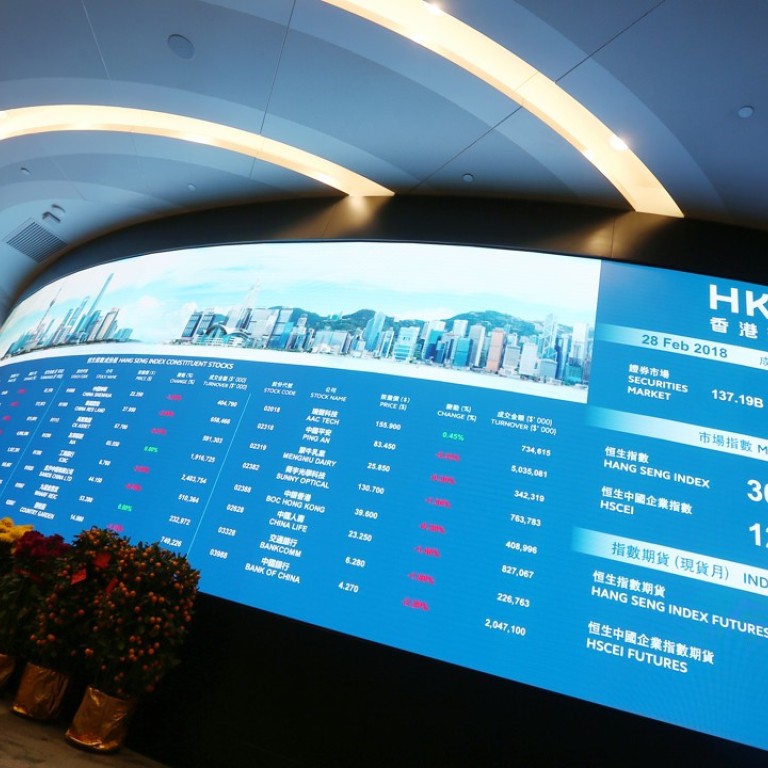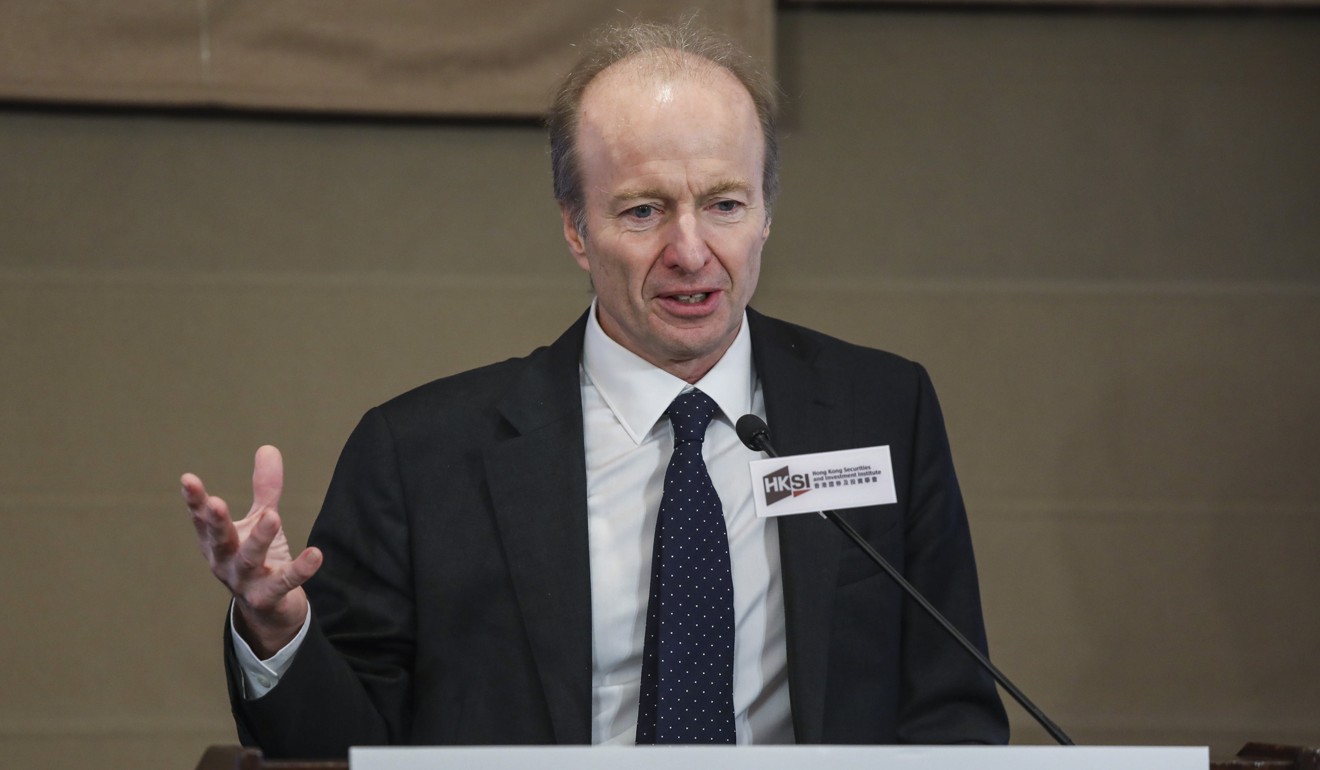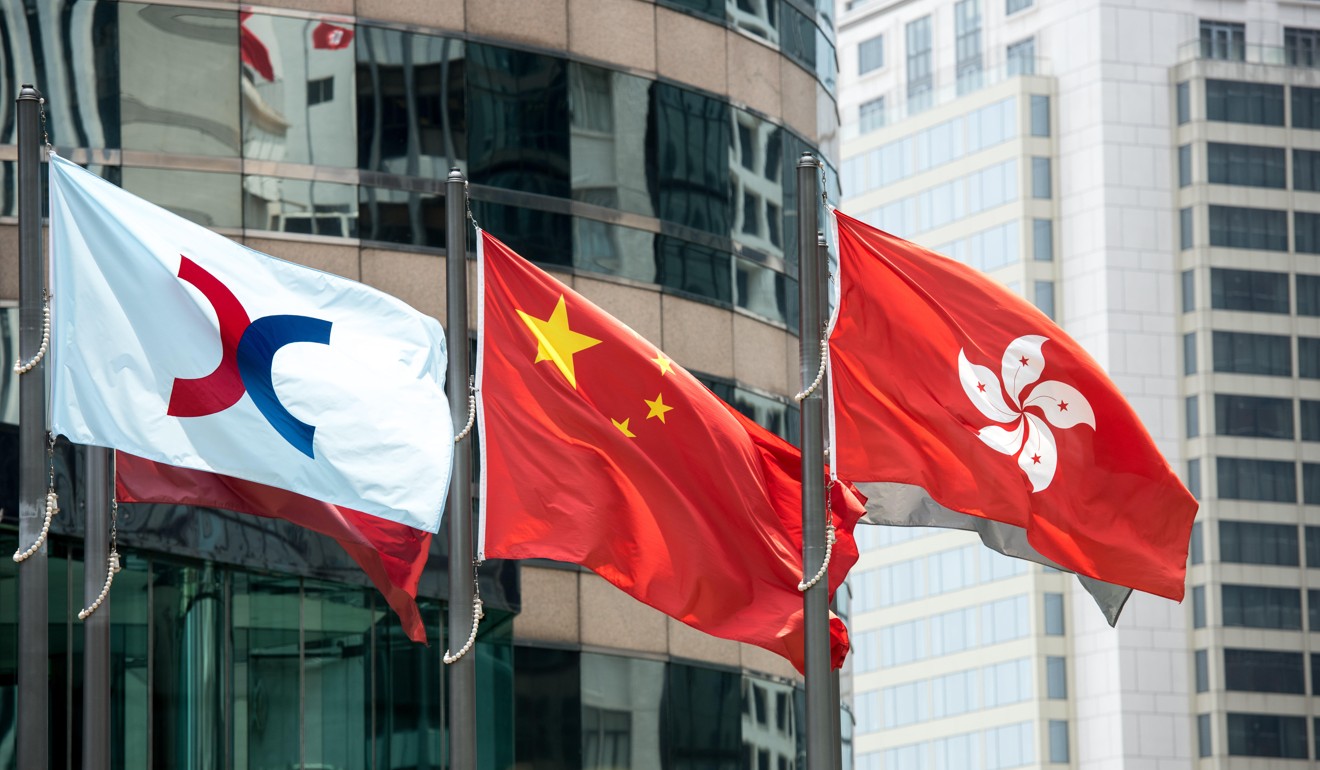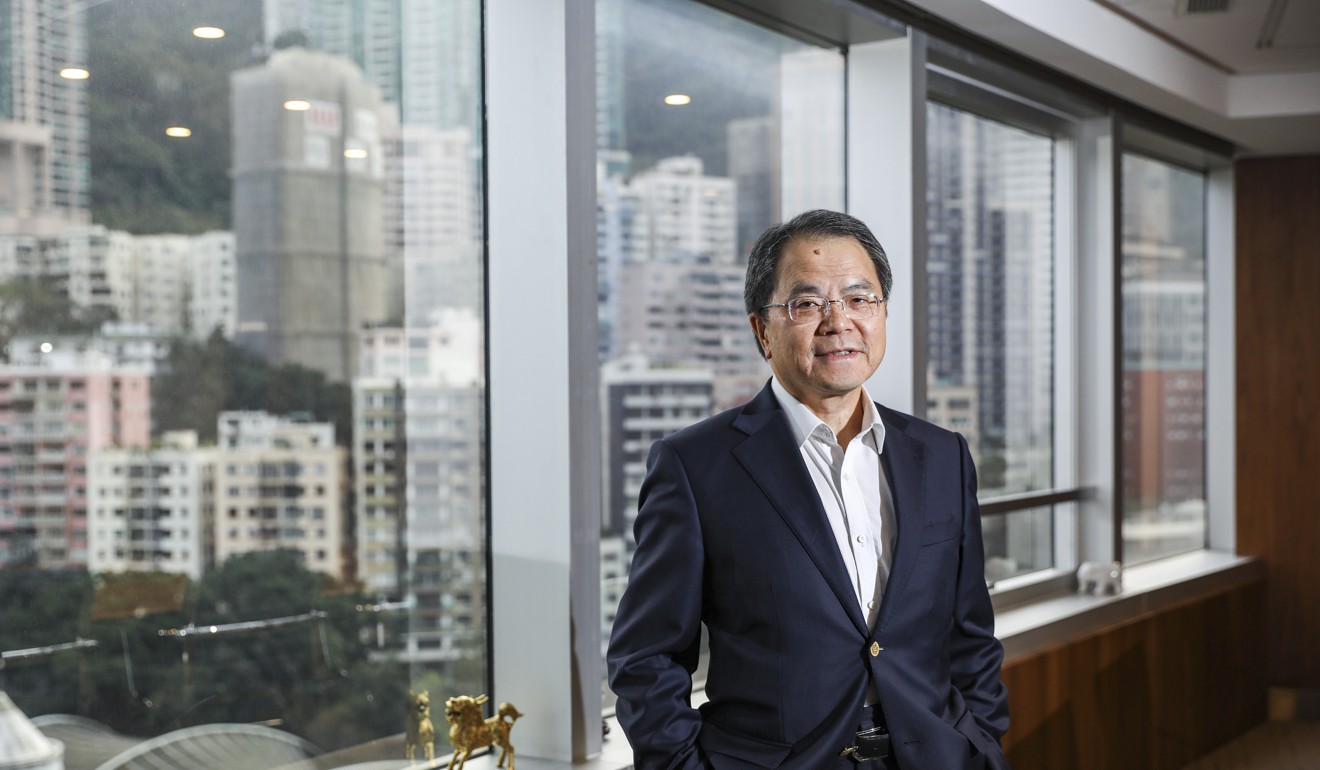
Does Hong Kong’s proposed suspension rule give regulators enough teeth to eject errant firms?
- David Graham, HKEX’s head of listing, says the new suspension proposals are aimed at protecting investors
- Under the proposal a company’s shares can be suspended from trading if the auditor gives disclaimed or an adverse opinion on the financial statement
Dozens of companies could be delisted as soon as next year if a controversial proposal and other measures of the Hong Kong stock exchange are implemented, as it looks to improve corporate governance and market quality, but it faces serious opposition from market participants.
Hong Kong Exchanges and Clearing (HKEX) is collecting views from the marketon its proposal that could lead to a company being suspended from trading if the auditor gives an adverse opinion or if there are disclaimers on the financial statement starting from January 1. The consultation period, which started in late September, ends on Friday.

The new proposal comes after the HKEX introduced tougher rules in August that allows it to delist a company after a trading suspension of 18 months.
Ashley Alder, chief executive of the Securities and Futures Commission, said the new measures were aimed at protecting the interest of investors.
“We are working with the exchange on some key listing rule changes to tackle highly dilutive capital raising, proposals to catch back-door listings and fast track procedures for delisting,” Alder said in a speech at the Hong Kong Securities Institute on Tuesday.
HKEX explores rule change to curb back-door listings, formation of shell companies
He said the proposed new rules, together with the SFC stepping up enforcement efforts in the past two years, have helped to crack down on poor quality small caps from listing as “shell companies” to prepare for back-door listings.
David Graham, HKEX’s head of listing, said the suspension proposals on auditor declaimers were aimed at protecting investors by safeguarding the quality of financial statements of listed companies.
“We also want to encourage issuers to resolve audit issues promptly with their auditors,” Graham said in late September when the stock exchange started the consultation process.
The Chamber of Hong Kong Listed Companies chairman Francis Leung Pak-to estimates about 100 companies may be delisted as a result of these new regulations.

“If a listed company’s auditor gave an adverse opinion on the financial statement, it is a very serious issue and the company should be suspended from trading until it sorts out the problem with the auditor,” Leung said. He, however, urged the exchange to relax the fast track delisting rule.
Currently 78 listed companies, including Convoy Global Holdings, have been suspended from trading for more than three months and they may face delisting if they are unable to restructure their business within 18 months. Another 41 firms have declaimers on their financial statements from auditors and they could be suspended next year, followed by delisting 18 months later.
Convoy sues executives in clean-up before boardroom showdown
Convoy’s former chairman and certain executives were arrested by the Independent Commission Against Corruption and the SFC in December last year. The financial firm’s deadline for delisting comes up in January 2020.
Ng Wing-fai, president and executive director of Convoy, said the company is working with the HKEX on a plan “for us to resume trading”.
Another well-known delisting candidate is Hanergy Thin Film Power Group whose founder Li Hejun was once the richest man in China. The company’s delisting deadline is July 31, 2019.
In addition, HKEX’s data showed that there were 43 companies with their auditor gave disclaimers of opinion in their financial statement in 2017. If the opinion of their auditors remains the same next year, they too risk suspension and delisting if the issue is not resolved in 18 months’ time.

Leung, known as the “father of red chips” for his savvy investment in many mainland-backed companies listing in Hong Kong in the 1990s, said minority investors stand to lose the most in the case of companies that are suspended not for any misconduct but for falling short of capital or failing to meet the minimum public float requirement.
China depository receipts to limit big tech listings in Hong Kong
He is a staunch advocate of back-door listing. “A suspended company should be allowed to find a white knight to inject assets to take over the company for a back-door listing and resume trading,” Leung said.
The HKEX has proposed to tighten the rules on back-door listings. The consultation process on these rules end in August.
Leung said the Chamber of Hong Kong Listed Companies has submitted its opposition to this regulation as the new rule will make it very hard for the buyers to inject assets into such distressed companies.
SFC’s Alder said the securities regulator wants tougher rules on back-door listing to prevent the formation of shell companies.
As long as the companies disclose their auditors have a problem with their financial statement, the HKEX should let these companies continue to trade
Leung said that there have been many instances of back-door listing successfully rescuing companies in trouble, giving a boost to their share price rose after the resumption of trading.
He gave the example of Daqing Dairy Holdings, which rose 182.9 per cent on the first day after it resumed trading after being rescued by a mainland hotpot chain in November last year.
Leung was instrumental in arranging Citic Pacific’s back-door listing in Hong Kong in February 1990. He followed this up by Guangdong Investment in December 1991.
“These companies are doing well. The HKEX should make sure that back-door listings are done properly instead of banning them and prolong the suspension of companies instead of delisting them altogether,” Leung said.
Shareholder activist David Webb is also opposed to the HKEX auditor and delisting proposals, saying that it was akin to “shooting patients to prevent illness”.
“The HKEX and the SFC (which approved the delisting change) appear to believe that the way to improve (or euphemistically, ‘maintain’) ‘market quality and reputation’ is to more quickly delist suspended companies, and in combination with that, to make it easier to suspend them in the first place, Webb wrote on the webb-site.com.
He said that the HKEX’s data showed that there were 50 long-suspended issuers whose securities resumed trading between 2012 and 2016. Of these, 46 resumed trading within 36 months. By cutting the recovery period to 18 months, only 33 of them would have survived.
Trading suspension proposal could increase tension, hurt investors
Christopher Cheung Wah-fung, a lawmaker who represents the financial services sector, is also opposed to the proposed suspension and delisting rules.
“As long as the companies disclose their auditors have a problem with their financial statement, the HKEX should let these companies continue to trade. It should be up to the investors to decide if they want to continue to invest in these stocks,” Cheung said.
Kenneth Leung Kai-cheong, a lawmaker who represents the accountancy sector, agreed with Cheung. He said the exchange should only suspend the companies from trading if their auditors have serious concerns.
A HKEX spokesman said on Friday morning that the consultation was still ongoing and he could not comment if the exchange has received many opposition comments.
“The proposed rule changes as set out in the consultation aim to offer enhanced investor protections and forms part of the exchange’s ongoing commitment to maintaining the quality and reputation of the Hong Kong market,” he said.

